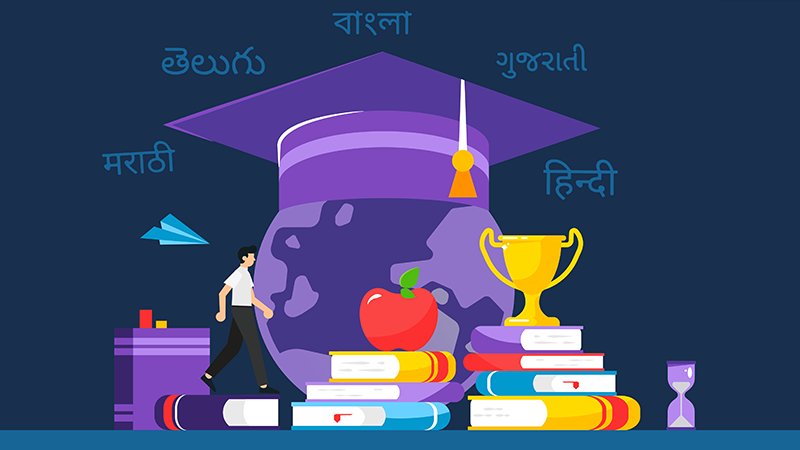The Indian education system is going through a major overhaul with the introduction of the National Education Policy. NEP was approved by the Union Cabinet of India on July 29, 2020. This policy comes with a new structure that promises to create a more flexible and engaging learning environment for the students. The policy aims to transform the Indian education system by 2030.
Let’s break down some key aspects of the NEP to understand what it means
One of the most major changes in the new structure is that the traditional (10+2) system is being phased out for a 5+3+3+4 structure which divides schooling into 4 stages:
● Foundational Stage (Ages 3-8): This stage focuses on the language development of students through play-based activities, it will consist of three years of pre-school followed by classes 1 and 2.
● Preparatory Stage (Ages 8-11): In this period, the emphasis on language development will continue but with an additional focus on numerical abilities will be used here.
● Middle Stage (Ages 11-15): At this level of schooling the focus will be on developing critical thinking in the students, which is a significant departure from the traditional rote learning methods.
● Secondary Stage (Ages 15-18): At this stage the most significant change is the transition to a more flexible system in which students will be able to choose from a variety of subject combinations. The selection will be made on the basis of their talents and interests rather than being classified into predetermined categories; Science, Commerce, Humanities.
Focus on Learning, Not Just Marks
The NEP emphasises a shift to a more understanding concept of learning. This means there will be less focus on exams and more on developing critical thinking abilities.
The aim of assessment in the culture of our schooling system will shift from one that is summative and primarily tests rote memorization skills to one that is more regular and formative. The assessment would be more competency-based, promote learning and development for our students. It will also test higher-order skills, such as analysis, critical thinking, and conceptual clarity.
Multilingualism and Flexibility
There are certain guidelines in this New Education Policy that have to followed no matter what:
● Mother Tongue as medium of instruction: The medium of instruction should be the student's mother tongue, local language, or regional language up to at least Grade 5.
● Three Language Formula: The policy acknowledges the importance of lingual diversity in India and, while a three language formula (English, Hindi, Regional Language) is recommended, schools will have the flexibility in its implementation based on the regional needs.
Strengthening the Role of Teachers
The policy recognizes the crucial role teachers play in the development of students. It proposes improved training programs, better working conditions and a more hands-on role for teachers to guide students.
Accessibility
The National Education Policy (NEP) 2020 defines accessibility as giving people with disabilities the same opportunities as people without disabilities. The NEP also recognizes the right of people with disabilities to education on an equal basis.
● Children with benchmark disabilities between the ages of six and eighteen will receive free education.
● Government and government-aided higher educational institutes will reserve at least 5% seats for students with benchmark disabilities.
● Indian Sign Language (ISL) will be standardised across the country, and National and State curriculum materials developed, for use by students with hearing impairment.
A Work in Progress
The NEP is a thorough plan, and its successful implementation will require major and collective efforts by educators, parents and policy makers. There are some challenges to it, infrastructure development, teacher training and resource allocation. Nevertheless, a focus on a more engaging and skill based education system holds immense promise for the future of Indian students.
